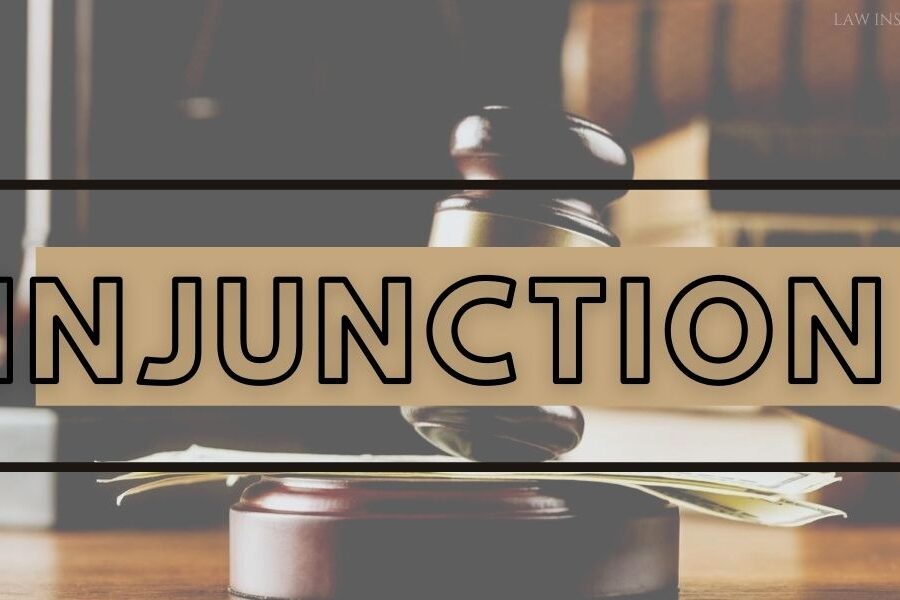An injunction is a court order that prevents someone from doing something or requires them to perform a specific act. It is a legitimate and fair remedy that can be used when compensatory damages alone are insufficient to make up for the harm done to an individual. The ideas of equity and natural justice lend support to the idea of an injunction. Similar guidelines apply to both English and Indian law when granting an injunction, including the court’s discretionary power.
Circumstances in which Permanent injunction can be granted-
Section 38 provides some circumstances under which permanent injunction can be granted. The conditions are as follows: –
A permanent injunction may be granted in order to prevent the breach of an obligation existed in favor of plaintiff or by implication subject to the other provisions provided or referred in chapter VIII.
* In cases where any such obligation arises from the contract, the court shall follow the provisions and rules provided in chapter II (specific performance of contracts, etc.).
*In cases where the defendant infringes or threatens to infringe the plaintiff’s right to property or its enjoyment, the court may grant the perpetual injunction. It includes following cases: –
*Where the defendant being the trustee of the plaintiff’s property.
*Where there exists no parameter for ascertaining the actual damage caused, or likely to be caused by an invasion.
*Where the invasion is of such nature that compensation in money would not be an adequate relief.
*Where the injunction is necessary in order to prevent the multiplicity of judicial proceedings.
Circumstances under which permanent injunction can’t be granted-
Section 41 provides conditions under which the court will not grant permanent injunction. The conditions are as follows: –
*To restrain any person from prosecuting a judicial proceeding pending at the institution of the suit in which the injunction is sought, unless such restraint is necessary to prevent multiplicity of judicial cases.
*To restraint any person from insulting or prosecuting any proceeding in a court not subordinate to that from which injunction is sought.
*To restraint any person from applying for prosecuting any legislative body.
*To restraint any person from instituting or any proceeding in a criminal matter.
*To prevent breach of a contract, the performance of which would not specifically enforced.
*To prevent, on the ground of nuisance, an act of which it is not reasonably clear that it will be a nuisance.
*To prevent a continuing breach in which the plaintiff acquiesced.
*When equally efficacious relief can certainly be obtained by any other usual mode of proceeding, except in case of breach of trust.
*When conduct of plaintiff or his agent is such to disentitle him to the assistance of the court.
Non- compliance of an Order of Injunction-
By definition, an injunction is a remedy given to safeguard the interests of the parties whose interests may be jeopardised by the other. That being said, there might be situations in which the subject of the order disobeys it. Therefore, there are several remedies available for the breach of injunction in order to safeguard the complainant’s interests. The well-known dictum Ubi jus ibi remedium, which states that where there is a right, there is a remedy, is frequently used by the court to explain this. In situations where their orders are disregarded, the court also demands a remedy. Therefore, in order to stop further disobedience of their order, the court needs a remedy against noncompliance as well.
Under Order 39 Rule 2A of the Civil Procedure Code provides for punishment for not obeying the order of injunction passed. It provides for the attachment of property of the person against whom the order of injunction has been granted. Also the court may order the person to be detained in a civil prison for a term not exceeding three months. Further, it states that the attachment of the property shall remain in force for the period of one month and if the breach continues to happen the property attached may be sold and the court may award compensation to the injured party or the person entitled thereto. As well Order 21 Rule 32 of the Civil Procedure Code provides that if the defendant fails to comply with the decree will lose his right of ownership as well the court at its discretion may seize his property.

